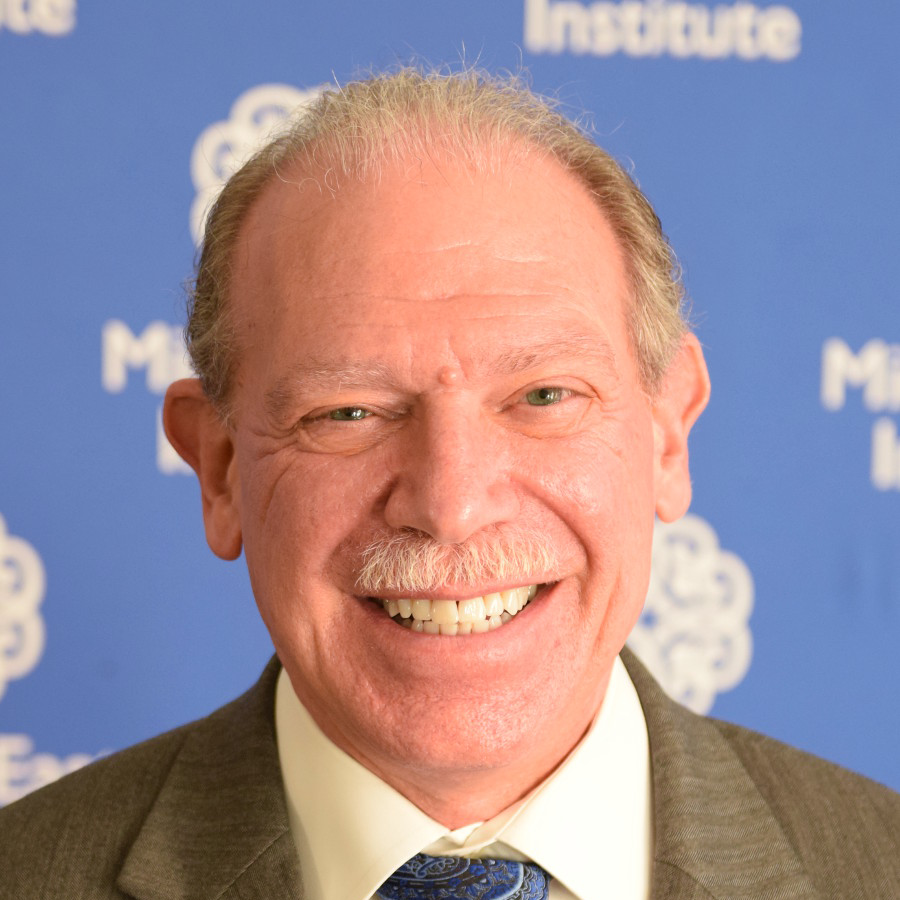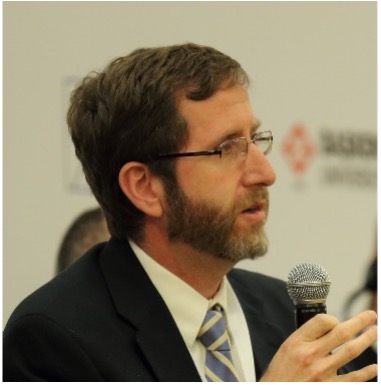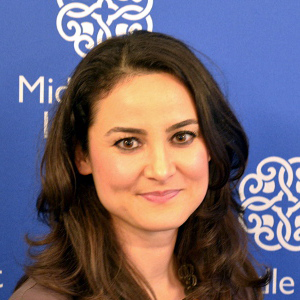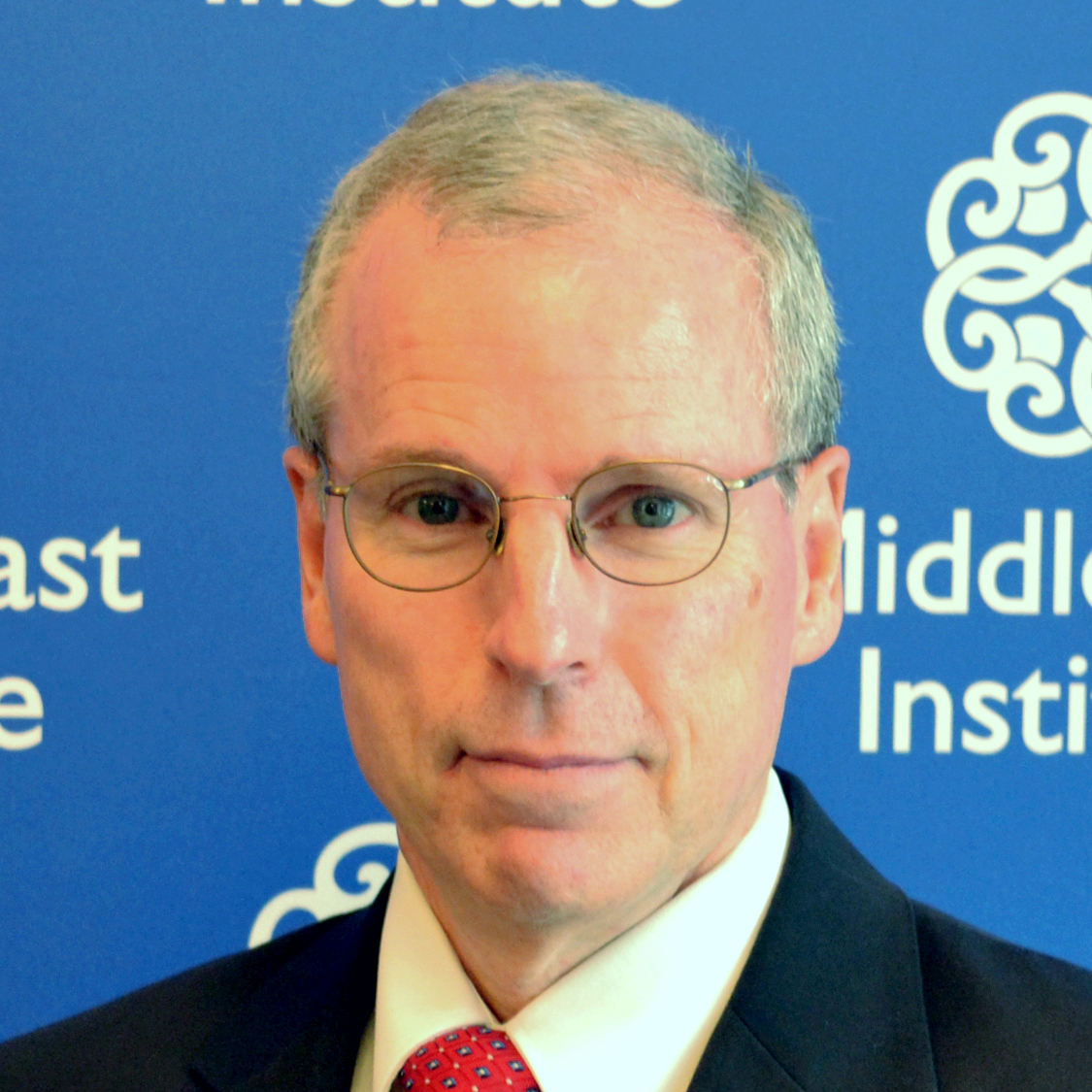Contents:
- Pakistan seems headed toward a deepening political crisis
- A glimmer of hope in war-torn Yemen
- UAE-Israel Comprehensive Economic Partnership is a gamechanger for the Middle East's commercial architecture
- Turkey to transfer the Khashoggi trial to Saudi Arabia
- Polarization worsens in Tunisia
Pakistan seems headed toward a deepening political crisis
Marvin G. Weinbaum
Director, Afghanistan and Pakistan Studies

On the cusp of a parliamentary no-confidence vote expected to cast him from office, Pakistan’s Prime Minister Imran Khan sought to outmaneuver his political party opponents. In a controversial action urged by a federal minister, the National Assembly deputy speaker dismissed the pending vote as unconstitutional. Then Khan, acting on his constitutional prerogative, requested the country’s president to dissolve the National Assembly and call for new national and provincial elections. Whether a prime minister has the right to seek dissolution of the federal and provincial assemblies while there is a pending motion for a no-confidence vote is debatable. Still more controversial is the deputy speaker’s power to decide on a question of constitutionality and specifically the applicability of the constitution’s provision that “no foreign power shall be allowed to topple an elected government through a conspiracy.” Pakistan’s Supreme Court has taken note of the controversy, agreed to hear opposing petitions, and called upon the military to ensure public order.
It was during Khan’s recent populist, often demagogic campaign to rally his supporters that he hammered down on the explosive charge that there existed a foreign-directed plot to unseat him. He accused the U.S. in its objection to his independent foreign policy of having colluded with his political opponents to sell out the country’s sovereignty. To back up his charge, Khan produced, in the best McCarthyistic style, a “letter” purporting to offer proof of an American conspiracy. He knowingly misrepresented a confidential diplomatic memo by Pakistan’s ambassador in Washington reporting on his meeting with a high U.S. State Department official. After having expressed the Biden administration’s building frustration with the anti-American direction of the Khan government’s policies, noting especially the prime minister’s decision to visit Moscow on the eve of the Russian invasion of Ukraine, the U.S. official is said to have spoken of there being “consequences.” In Khan’s hands this internal communication became conclusive evidence of a grand conspiracy.
Early elections, however realized, seem almost inevitable. Khan may well succeed in returning to power. The widely diverse opposition parties had managed to unify in pressing for a no-confidence vote. But it is more difficult to imagine their aligning to contest national and provincial elections. Moreover, no leader currently has the rhetorical skills and guile to match up with Khan in what is certain to be a vicious campaign. If again handed the levers of power, an emboldened Khan can be expected to aggressively push his policy agenda and punish his critics and, unless checked by the military, further orient his foreign policy toward Moscow and Beijing. But in the event that Khan loses out at the polls, he has already signaled his unwillingness to accept the results, in which case Pakistan faces a period of political turmoil likely to invite the military to step into the breach.
Follow on Twitter: @mgweinbaum
A glimmer of hope in war-torn Yemen
Gerald M. Feierstein
Senior Vice President

The announcement last week that the parties to the conflict in Yemen, nearing its eighth anniversary, had agreed to a U.N.-brokered two-month truce is the first positive development there since the Stockholm agreement of 2019. In addition to the parties’ commitment to cease fighting, including Houthi cross-border attacks into Saudi Arabia and the UAE as well as coalition air raids, the deal allows for limited resumption of operations at Sana’a International Airport and the import of fuel through the northern terminus at the port of Hodeida. In fact, the first fuel shipment has arrived at Hodeida. The announcement was broadly welcomed by the international community, including U.S. Special Envoy Tim Lenderking, who is currently in Riyadh to attend the Yemeni-Yemeni dialogue being conducted under Gulf Cooperation Council auspices.
All of the elements of the current agreement were included in the unsuccessful effort in 2020-21 by former U.N. Special Envoy Martin Griffiths to negotiate a Joint Declaration. That negotiation faltered over Houthi insistence that the elements appealing to them — the airport and port of Hodeida openings — be front-loaded before they would negotiate a comprehensive cease-fire. Why they have changed their position and accepted a concurrent implementation is a major question at this juncture. The cease-fire comes on the heels of recent setbacks that the Houthis have suffered in their military campaign in Marib and Shabwa governorates. Conceivably, the Houthis have decided to give up on their goal of a military victory and will now seek a negotiated settlement. But an equally credible possibility is that they see the two-month truce as an opportunity to re-group and re-equip before resuming their offensive operations after Eid al-Fitr. Memories are fresh that they used a similar respite following completion of the Stockholm agreement to broaden military operations and prepare for their assault on Marib. So caution is appropriate in evaluating whether this is the opening that the Yemeni people and the international community have been waiting for to bring this conflict to an end.
In the meantime, the cease-fire announcement has distracted from the ongoing Yemeni-Yemeni talks that are scheduled to continue until April 7. Houthi refusal to participate in the talks, arguing that the venue in the capital of a “party to the war” made it inappropriate, diminished the importance of the meeting. Nevertheless, the conference offers opportunities to the non-Houthi parties to coordinate on their policies including, potentially, an agreement to revitalize the government, re-organize the cabinet, and, perhaps, pave the way for the government to return permanently to Aden. Thus, if successful, the conference can strengthen the hand of government-aligned Yemeni forces as a prelude to a possible return to the negotiating table this summer if the Houthis are serious about ending the conflict.
UAE-Israel Comprehensive Economic Partnership is a gamechanger for the Middle East's commercial architecture
Michaël Tanchum
Non-resident Scholar

On April 1, 2022, the United Arab Emirates (UAE) and Israel concluded talks on a Comprehensive Economic Partnership Agreement (CEPA) to be formally signed in the near future. The landmark trade agreement follows the September 2020 Abraham Accords that normalized relations between the two countries. The UAE's minister of state for foreign trade, Thani al-Zeyoudi, extoled the CEPA as a "milestone deal" that "will build on the historic Abraham Accords and cement one of the world’s most important and promising emerging trading relationships." Israeli Prime Minister Naftali Bennett said the deal "will significantly upgrade economic cooperation for the benefit of the citizens of both countries," adding that "there will be more trade, more jobs and good products at lower prices.” One year after the signing of the Abraham Accords, UAE-Israel non-oil trade reached $700 million. Following the CEPA, some in the UAE business community expect Israel to become one of the country's top 10 trading partners.
The transformative effect of the UAE-Israel CEPA on the Middle East's commercial architecture will come in the form of investment flows and technology partnerships. With a GDP of $401.5 billion, the UAE is the second largest economy in the Arab Middle East. For Israel, the UAE promises to be an important source of investment, while for the UAE, Israel promises to be an important high-tech partner. Israel was ranked by Bloomberg's Innovation Index 2021 as the world's seventh most innovative economy and should serve as a vital partner for the UAE (ranked 43rd) in its drive to develop next-generation technologies. As the chief executive of the Dubai Chamber explained in the run-up to the CEPA talks' conclusion, “What we are looking to do with Israel is [slightly] different than just pure trade. It is about transfer of technology, it’s more about collaborating in different [strategic areas].”
Already in December 2020, the two countries launched the UAE-IL Tech Zone initiative that seeks to build a hub that bridges the Israeli and Emirati technology ecosystems. The UAE-Israel CEPA will unleash the robust potential with renewable energy and agritech being among the leading sectors.
Emirati-Israeli cooperation will also extend beyond the Middle East region, particularly to India, which signed a CEPA with the UAE in February. As explained in detail in a prior publication, a new commercial corridor from India to the Arabian Peninsula and the Mediterranean Sea has already been emerging from the synergy between the UAE and Israel's respective investment and innovation technology relationships with India.
Follow on Twitter: @michaeltanchum
Turkey to transfer the Khashoggi trial to Saudi Arabia
Gönül Tol
Director of Turkey Program and Senior Fellow, Frontier Europe Initiative

Last week, Turkey’s justice minister, Bekir Bozdağ, said the government will recommend the Istanbul court transfer the trial of Saudi suspects over the killing of journalist Jamal Khashoggi to the Saudi authorities, as requested by Saudi Arabia. The move comes as Turkey is seeking to mend ties with regional countries, including the kingdom.
The 2018 killing of the Saudi journalist came at a bad time for President Recep Tayyip Erdoğan, who was facing mounting challenges at home, including a currency crisis, double-digit inflation, and an enormous current account deficit, that forced him to fix Turkey’s badly damaged relationship with Europe and the U.S. The prospect of a crisis with Saudi Arabia, which was a major investor in Turkey, risked further trouble for Turkey’s strongman. Yet, he played a leading role in implicating Saudi Arabia and its crown prince, Mohammed bin Salman (MBS), by leaking evidence of Saudi official complicity. Erdoğan hoped to achieve several things. He wanted to improve his reputation in Western capitals, which had been badly tarnished by the jailing of journalists and the violation of other human rights. He also sought to deal a blow to Turkey’s rival and drive a wedge between Washington and MBS. Ankara viewed MBS as a toxic figure whose rise to power exacerbated tensions between Turkey and the kingdom and whose close alliance with Washington led to reckless policies and increased Iran’s regional clout. Erdoğan hoped that if he continued to increase pressure on MBS, King Salman would dislodge the crown prince.
Erdoğan did indeed win global praise for highlighting what happened to Khashoggi, but the rest did not go as he planned. Neither the Trump nor the Biden administration has done enough to isolate the crown prince, and Saudi Arabia remains an important U.S. regional ally. Meanwhile, Turkey’s economic woes have grown, Erdoğan lost important elections in 2019, and Joe Biden’s victory in 2020 put the prospects of turning a new page with the West under further strain. Facing growing headwinds, Erdoğan decided to change course. In doing so, he is betraying the man whom he called a friend by handing the trial over to the perpetrators and walking back the one decent thing he did in years when it comes to upholding human rights.
Follow on Twitter: @gonultol
Polarization worsens in Tunisia
Robert S. Ford
Senior Fellow

The political scene in Tunisia is worsening, and relations between Tunis and Washington are suffering. A majority of parliamentarians met online on March 30 and voted to cancel President Kais Saied’s July 2021 exceptional measures giving Saied unique authorities. Their move provoked Saied to dissolve parliament on March 31. The next day the police convoked the president of the parliament and leader of the Islamist party, as well as dozens of other parliamentarians, to warn that they are under investigation for conspiracy against the state. On April 4 some parliamentarians announced the creation of a national committee to defend parliamentarians while political parties across the spectrum demanded new elections within three months. Some political figures have called on civil society to begin protesting President Saied’s increasingly authoritarian actions. President Saied meanwhile insists that discussions continue about his proposed new constitution before it goes to a national referendum in July. If it is approved, legislative elections will follow in December 2022. In the meantime, Saied insists he will retain full authority to administer and establish new laws.
Tunisian civil society is itself torn. The head of the lawyers’ association on April 1 issued a statement after meeting President Saied that the Tunisian president was open to discussing with “patriotic” parties and national figures the proposed new constitution. On April 4 the previous chief of the lawyers’ association denounced Saied’s actions against parliamentarians. Meanwhile, the powerful Tunisian labor union in March had insisted that Saied include even Islamists in his constitutional dialog. In a March 31 statement its leadership also accepted that Saied’s dissolution of the parliament was a necessary step to advance vital reforms.
The U.S. State Department spokesman said Washington is “deeply concerned” about the dissolution of parliament and urged a return to an elected parliament. The administration’s 2023 budget request includes sharp cuts in military and economic aid to reflect its unhappiness with Saied’s moves. The top State Department human rights official spent three days in Tunisia at the end of March, meeting the foreign and interior ministers among others. Three days after her departure Saied dissolved the parliament. The American aid cuts, totaling about $90 million, won’t matter much for Tunisia’s $20 billion annual budget. To influence Saied Washington would need to convince other major donors, such as the European Union, France, and Germany, to exert strong pressure as well.
Follow on Twitter: @fordrs58
Photo by AAMIR QURESHI/AFP via Getty Images
The Middle East Institute (MEI) is an independent, non-partisan, non-for-profit, educational organization. It does not engage in advocacy and its scholars’ opinions are their own. MEI welcomes financial donations, but retains sole editorial control over its work and its publications reflect only the authors’ views. For a listing of MEI donors, please click here.













